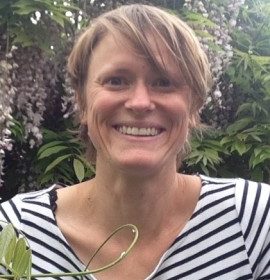I am an Associate Professor the Department of Geography at the University of British Columbia. My research centres around the political ecologies of biodiversity conservation, although I am pretty much interested in anything and everything at the intersection of environmentalism, social justice and political economy.
My first book, Enterprising Nature, tracks the rise of a powerful idea in global biodiversity conservation. Many ecologists, bureaucrats, and activists now believe that the only way to slow the decimation of nonhuman life on earth is to translate conservation into an economically rational—even profitable—set of policies and practices. “In order to make live,” goes the ascending mantra, “one must make economic.” Enterprising Nature analyses this mantra’s origins and the international alliances that enable it to spread. Crucially, the book focuses not only the smooth ascent of enterprising nature, but rather on the enormous challenges the project faces: technical, scientific, economic, and political. Enterprising nature seems like an “easy fix” to ecological degradation, tailor-made for our austerity bound, market-governance times, and yet it remains marginal. The book recently won the 2018 James M. Blaut Award in recognition of innovative scholarship in cultural and political ecology. This research continues….(see here for more)
While much of my research has focused on dominant approaches to biodiversity conservation, as a Peter Wall Scholar in the upcoming academic year (2018-2019), I will turn my attention to theorizing biodiversity loss: how and why does biodiversity loss continue despite the proliferation of conservation laws and policies? This is a collaborative project with Rosemary Collard (SFU, Geography). Biodiversity loss seems to have a kind of momentum, or even a life of its own. But, we ask, from where does this momentum stem? The year at the Wall will kickstart a multi-year and multi-site research project Rosemary and I are calling Cheap Natures of Canada. In this project we aim to understand the devalued position of nonhumans like the woodland caribou—species ostensibly “protected” yet still facing ongoing habitat loss. Currently supported by a Hampton grant, the project will build empirically based, political-economic theorizations of biodiversity loss, tracing how wild natures are kept in devalued, or “cheap” positions by laws, policies and economic systems.
I am also involved in the “Bioeconomies Media Project“, a SSHRC funded collaboration with an environmental organization, the ETC group, and Dr. Rosemary Collard (of Concordia University), We produced a website and three short animated videos on ecosystem services, wildlife, and synthetic biology bioeconomies (including the one above).

